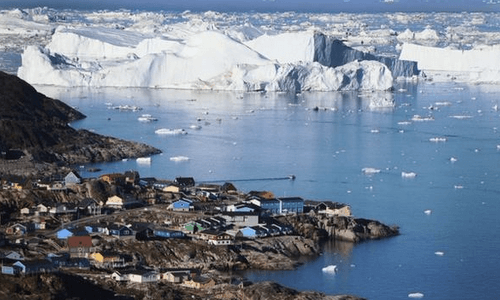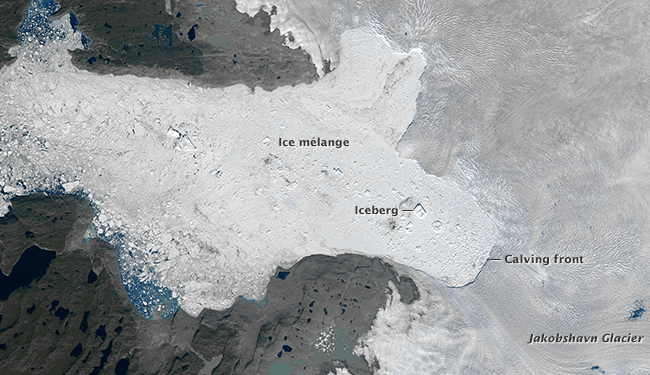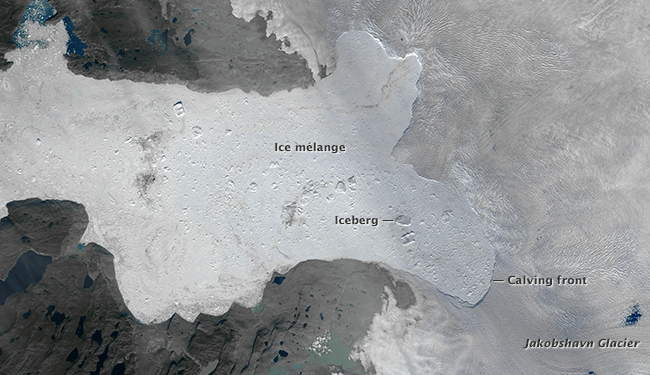
One of World’s Fastest Melting Glaciers May Have Lost Largest Chunk of Ice in Recorded History

“The calving events of Jakobshavn are becoming more spectacular with time, and I am in awe with the calving speed and retreat rate of this glacier,” said Eric Rignot, a glaciologist at the Jet Propulsion Laboratory, in a NASA Earth Observatory post. “These images are a very good example of the changes taking place in Greenland.”
“What is important is that the ice front, or calving front, keeps retreating inland at galloping speeds,” Rignot said.
The Jakobshavn is of particular significance since it is responsible “for draining a large portion of the Greenland Ice Sheet,” and “could contribute more to sea level rise than any other single feature in the Northern Hemisphere,” the Earth Observatory post stated.
According to University of Washington glaciologist Ian Joughin, Jakobshavn’s calving front has moved about 600 meters (2,000 feet) farther inland than the summer before for the last several years.
The Jakobshavn is also one of the fastest-flowing glaciers in the world. In the summer of 2012 alone, the glacier accelerated at a rate of 17 kilometers (10 miles) per year, a speed never witnessed before. On average, the glacier moved nearly three times faster in 2012 than it did in the mid-1990s.
Worldwide, the current rate of glacier melt is without precedent. Recent data compiled by the World Glacier Monitoring Service (WGMS) show that several hundred glaciers are losing between half and one meter of thickness every year—at least twice the average loss for the 20th century—and remote monitoring shows this rate of melting is far more widespread.
YOU MIGHT ALSO LIKE
The Drought in California Is So Bad the Ground Is Literally Sinking
Astronaut Snaps Epic Photo of Wildfires from Space as Record 7 Million Acres Burn
Alaska’s Rapidly Melting Glaciers: A Major Driver of Global Sea Level Rise

 233k
233k  41k
41k  Subscribe
Subscribe 

